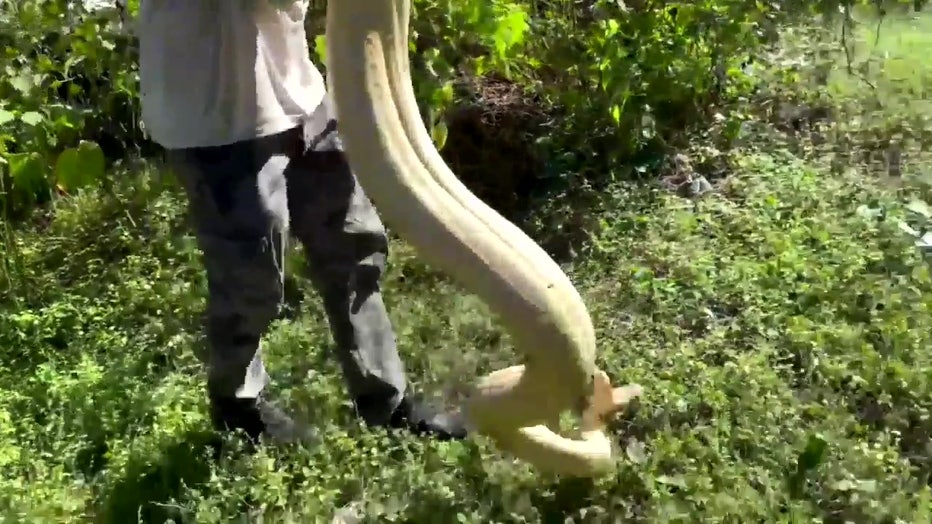Snake wranglers capture massive albino boa constrictor in Florida backyard
Florida snake wranglers capture massive albino boa constrictor in Naples backyard
(Video courtesy: Tobie's Troop/YouTube and WSVN)
NAPLES, Fla. - When a Florida homeowner spotted a gigantic snake in their backyard, they quickly called Rhett and Taylor Stanberry.
The professional snake wranglers, who catch invasive pythons as well as remove and relocate venomous snakes throughout South Florida, say they're used to encountering large animals in their line of work. But even they did a double-take when they found the massive reptile in the backyard of a Naples home in early December.
Rhett Stanberry said the homeowner sent him a message about a "huge python" in their backyard, but when they found the snake in the bushes, they realized it was actually a 9-foot-long albino boa constrictor.
"That is one of the fattest – that’s a pet snake," Rhett could be heard saying in their video, which they posted to their YouTube channel, Tobie's Troop. "That is the fattest boa constrictor I have ever seen."
The couple's video showed the boa hissing and lunging at them.
"This Boa was just as defensive as a wild Burmese Python, who knows how long it's been out there eating bunnies (and probably cats)," Rhett wrote on Facebook.
The couple eventually managed to get the massive reptile into a bag and brought it back to their facility to weigh and measure it.
"Nine feet. A hundred and 13 inches, so 9 feet, five inches," Taylor said. "This snake is 52 pounds. That is a big boa."

The albino boa constrictor was found in the backyard of a Naples home. (Courtesy: Rhett and Taylor Stanberry)
The Stanberrys believe the snake was likely kept as a pet and released when it got too large, or it may have been lost during a storm such as Hurricane Ian, which made landfall on the southwest coast of Florida back in September.
RELATED: Photo captures moment rare Florida pine snake devours cottontail
Albino animals are more at risk in the wild because they cannot camouflage due to their lack of pigmentation.
The couple says the albino boa will stay at their private facility under the Florida Wildlife Conservation Commission’s Class III License, which allows legal possession of non-domesticated animals.

